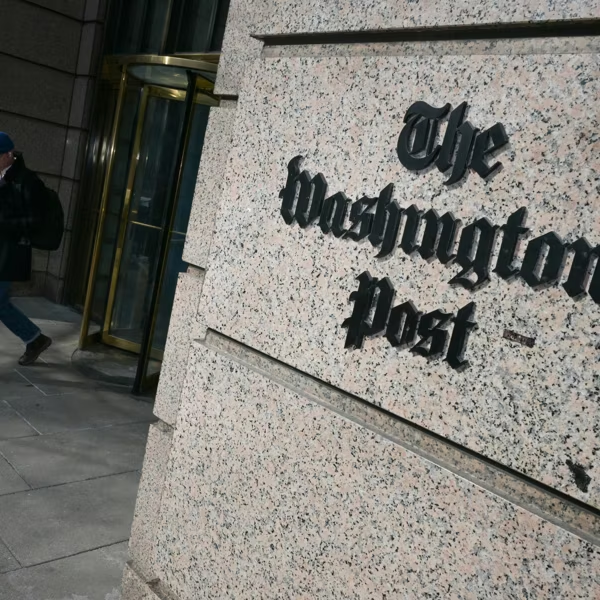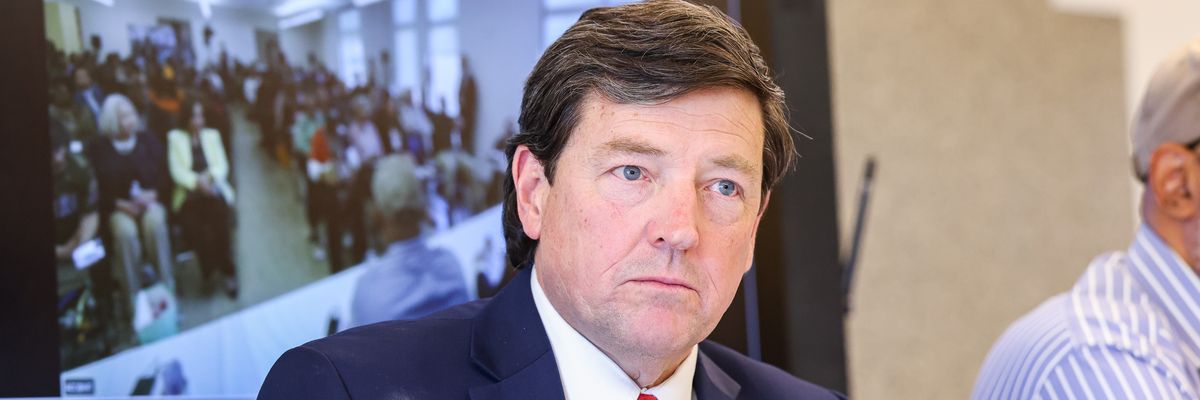Reports of letters that an interim U.S. attorney has sent to several medical journals in the United States prompted a show of solidarity from the U.K.-based Lancet on Friday, with the publication denouncing "the harassment of journals" and warning it "comes amid wider radical dismantling of the USA's scientific infrastructure."
The letters, containing questions about the academic journals' bias, come a year after Health and Human Services Secretary Robert F. Kennedy Jr. said he hoped to prosecute medical journals and accused the New England Journal of Medicine (NEJM)—which condemned President Donald Trump's response to the coronavirus pandemic in 2020—of "lying to the public."
The letters from interim U.S. Attorney Edward Martin, who has previously been accused of using his office to target Trump's critics, are "an obvious ruse to strike fear into journals and impinge on their right to independent editorial oversight," said The Lancet.
NEJM is one of at least four medical journals that have received the correspondence from Martin recently. According to Medical Professionals Reference, the peer-reviewed journal CHEST, which is published by the American College of Chest Physicians, received a letter on April 14 with the following questions and a demand that editors respond by May 2:
- How do you assess your responsibilities to protect the public from misinformation?
- How do you clearly articulate to the public when you have certain viewpoints that are influenced by your ongoing relations with supporters, funders, advertisers, and others?
- Do you accept articles or essays from competing viewpoints?
- How do you assess the role played by government officials and funding organizations like the National Institutes of Health in the development of submitted articles?
- How do you handle allegations that authors of works in your journals may have misled their readers?
Martin also asked the editors whether "publishers, journals, and organizations with which you work are adjusting their method of acceptance of competing viewpoints."
Psychiatrist Eric Reinhart of Northwestern University posted the letter on X last week and asked what kinds of "competing viewpoints" Martin—former chair of the Missouri Republican Party and president of the right-wing Eagle Forum Education and Legal Defense Fund—might want to see a medical journals about respiratory health.
"'Is sarcoidosis actually bad?" Reinhart suggested sardonically. "Should trans people get treatment for chest infections? Is ivermectin the cure for lung cancer? Why shouldn't Joe Rogan perform lung transplants? So glad RFK Jr. is in charge to ensure these important views get airtime."
Reinhart urged other scientific journal editors to speak out against threats they receive from the Trump appointee.
Adam Gaffney, a pulmonary and critical care physician at Cambridge Health Alliance in Massachusetts and former president of Physicians for a National Health Program, also called on journal editors to "join together and publicly renounce this as yet more thinly guised anti-science political blackmail."
"It is yet another example of the Trump administration's effort to control academic inquiry and stifle scientific discourse—an administration, it warrants mentioning, that has embraced medical misinformation and pseudoscience to reckless effect," Gaffney told MedPage Today last week.
The letters have been received by the medical journals as Kennedy angered medical experts and families with his recent comments about autism, claiming that "most cases now are severe"—a claim not backed up by science. Kennedy has also recently downplayed measles outbreaks in the United States before finally admitting this month that the measles-mumps-rubella (MMR) vaccine is the best defense against the disease.
The Trump administration has also cut funding for health agencies, prompting concern that it is sabotaging the country's ability to produce high-quality biomedical research as it has for generations.
NEJM responded to Martin ahead of the May 2 deadline, telling the prosecutor the journal uses "rigorous peer review and editorial processes to ensure the objectivity and reliability of the research we publish. We support the editorial independence of medical journals and their First Amendment rights to free expression."
Eric Rubin, editor-in-chief of the publication, told The New York Times, "Our job is to evaluate science and evaluate it in an unbiased fashion."
"The questions seem to suggest that there's some bias in what we do—that's where the vaguely threatening part comes in," Rubin said.




